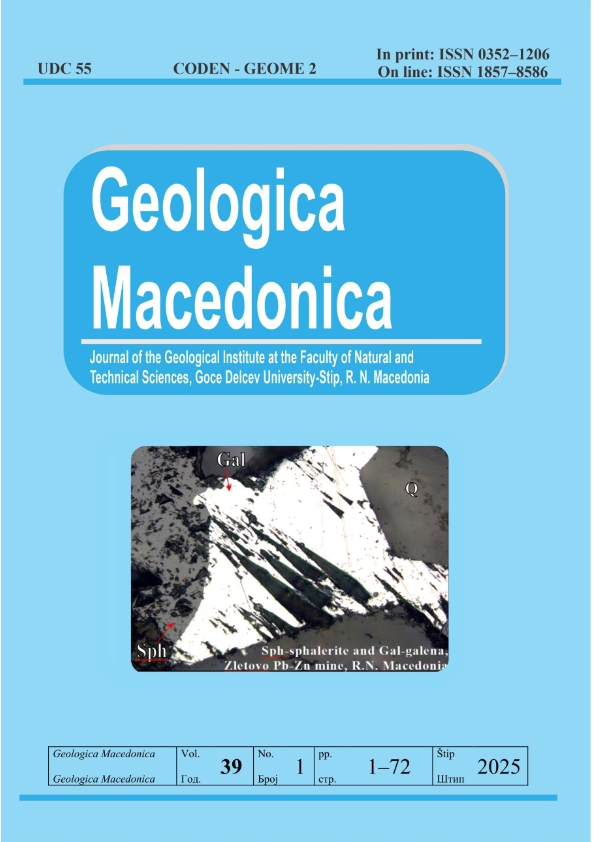ANALYSIS OF DISCRETIZATION ERRORS IN MICROTREMOR MEASUREMENTS
DOI:
https://doi.org/10.46763/GEOL2539147kvKeywords:
discretization; microtremors; Fourier spectrum; measurement accuracy; building vibrationsAbstract
This study investigates the effects of discretization errors on the analysis of microtremor vibrations measured in a building located in Berovo, using the EQR120 accelerometer. The primary focus is on the impact of discretization on Fourier spectral amplitudes and the accuracy of frequency domain analysis. The results show that with increasing recording time (T), there are more pronounced peaks in the Fourier spectrum, especially for higher frequencies. Despite variations in discrete levels of acceleration, the frequency domain response of the instrument remains nearly constant over a wide range of frequencies, resembling white noise. The study highlights that microtremor amplitudes are generally small, and significant variations in spectral amplitudes were not observed over time in a 24 hour measurement period. The findings suggest that external excitation with larger forces is needed to observe spectral peaks, particularly in the ground floor movements. The analysis provides valuable insights into the behavior of microtremors in built environments and emphasizes the challenges of capturing small-scale vibrations in densely populated areas.

